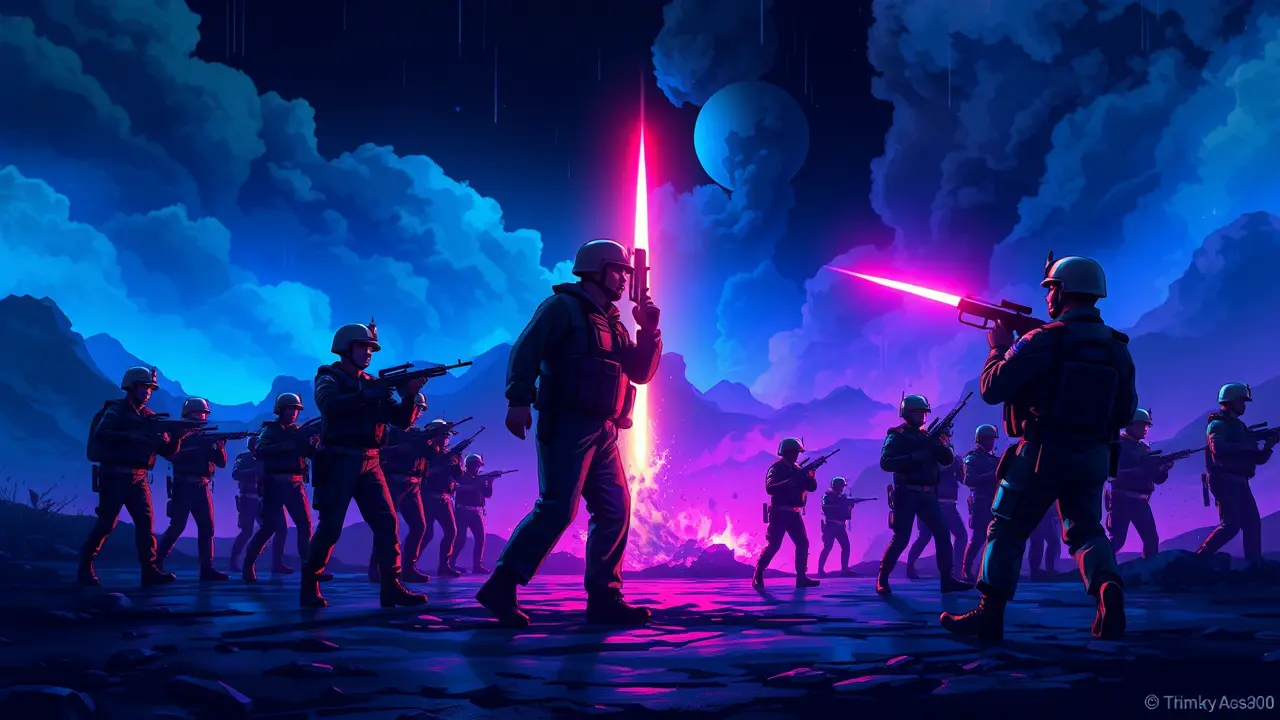
Politicsconflict & defenseMilitary Operations
Trump Downplays War Risk With Venezuela, Mentions Strikes
RO
Robert Hayes
15 hours ago7 min read
In a calculated rhetorical maneuver reminiscent of historical brinkmanship, President Donald Trump has publicly downplayed the imminent threat of armed conflict with Venezuela while simultaneously refusing to rule out the precise military instrument of 'land strikes,' a strategic ambiguity that echoes the tense cadence of Cold War-era statecraft and demands a sober analysis of the escalating Western Hemisphere crisis. This delicate dance between de-escalation and provocation is not occurring in a vacuum; it is the latest, most volatile chapter in a long-standing campaign of maximum pressure aimed at unseating the socialist regime of Nicolás Maduro, which the United States and nearly sixty other nations have deemed illegitimate following the widely contested 2018 presidential election.To fully grasp the gravity of Trump's statement, one must look beyond the cable news chyrons and consider the historical parallels, such as the Cuban Missile Crisis where Kennedy’s public resolve was matched by private, back-channel negotiations, or the more recent precedent of the 2018 missile strikes on Syria, which were executed with surgical precision after similar public musings. The specific mention of 'land strikes' is particularly telling, shifting the strategic calculus away from a purely naval blockade or aerial bombardment and towards a more invasive, ground-targeted operation that could involve specialized forces or precision-guided munitions aimed at critical command and control infrastructure, a move that would undoubtedly be framed by Caracas and its allies in Moscow and Havana as an act of overt aggression rather than a limited intervention.The regional implications are profound, threatening to shatter the fragile unity of the Lima Group, which has thus far pursued a diplomatic and economic path to regime change, and potentially forcing neighboring Colombia and Brazil into a precarious position as either reluctant staging grounds or vocal opponents of unilateral U. S.action. Furthermore, the global dimension cannot be ignored; with Russia having deployed military personnel to Caracas and China holding significant Venezuelan debt, any kinetic action risks triggering a proxy confrontation that extends far beyond the Caribbean, testing the limits of international law and the post-Cold War world order.Expert commentary is sharply divided: some security analysts argue this is mere posturing, a high-stakes bluff designed to fracture the Venezuelan military's support for Maduro, while others point to the steady buildup of U. S.assets in the region and the appointment of hardline advisors as indicators of a genuine, if contingent, war plan. The potential consequences are staggering, ranging from a catastrophic humanitarian crisis as the nation's collapsed infrastructure buckles under the strain of conflict, to a protracted insurgency that could destabilize the entire continent, to a severe erosion of U.S. soft power and diplomatic capital. Ultimately, Trump’s statement is a masterclass in applied pressure, a weaponization of uncertainty that keeps Maduro guessing and the world on edge, but like Churchill’s warnings about the gathering storm in the 1930s, it may either be a prescient call to avert disaster or a self-fulfilling prophecy hurtling towards a bloody and unpredictable conclusion.
#featured
#Trump
#Venezuela
#military intervention
#land strikes
#US foreign policy
Stay Informed. Act Smarter.
Get weekly highlights, major headlines, and expert insights — then put your knowledge to work in our live prediction markets.
© 2025 Outpoll Service LTD. All rights reserved.